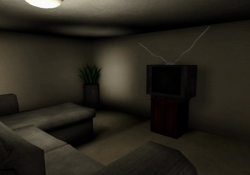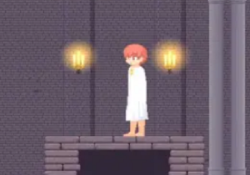Terms Of Use places the player inside what first appears to be a standard digital environment—an interface modeled after a typical terms and conditions screen. At first glance, everything seems ordinary: text boxes, accept buttons, and scrolling pages. But it doesn’t take long for the player to notice that the format hides something deeper. What begins as a simple interaction with an agreement slowly shifts into an unsettling exploration of control, consent, and the fine print we never read.
The Illusion of Choice
As the player navigates the menus, attempts to accept or decline the terms trigger strange responses. The interface becomes less responsive, and unusual messages begin to appear. The game cleverly uses elements of standard user agreements to create tension. Simple actions like clicking a checkbox or trying to exit the screen start to feel loaded with consequence.
What Players Will Encounter:
- A realistic interface built to resemble legal documents
- Hidden triggers tied to player choices
- Evolving text that changes meaning as the game progresses
- Audio and visual cues that suggest surveillance or restriction
- A narrative built around themes of consent and digital control
Breaking the Surface
The deeper players go, the more distorted the experience becomes. The formal language in the agreement transforms into something personal, as if the game begins to speak directly to the player. Attempts to navigate away from the screen become futile. Interface elements glitch, buttons multiply, and screens loop back unexpectedly. What was once a simple menu becomes a maze of intent, where every action is watched and every refusal leads to resistance.
A Reflection on Modern Interactions
Terms Of Use is not a long game, but it leaves a strong impression. It doesn’t rely on traditional horror or jump scares, instead creating unease through familiarity. By turning a common part of modern digital life into a space of psychological tension, it invites players to question how often they give up control without thinking. The game’s power lies in its simplicity, using the language and structure of something routine to make players feel something unexpected.





























